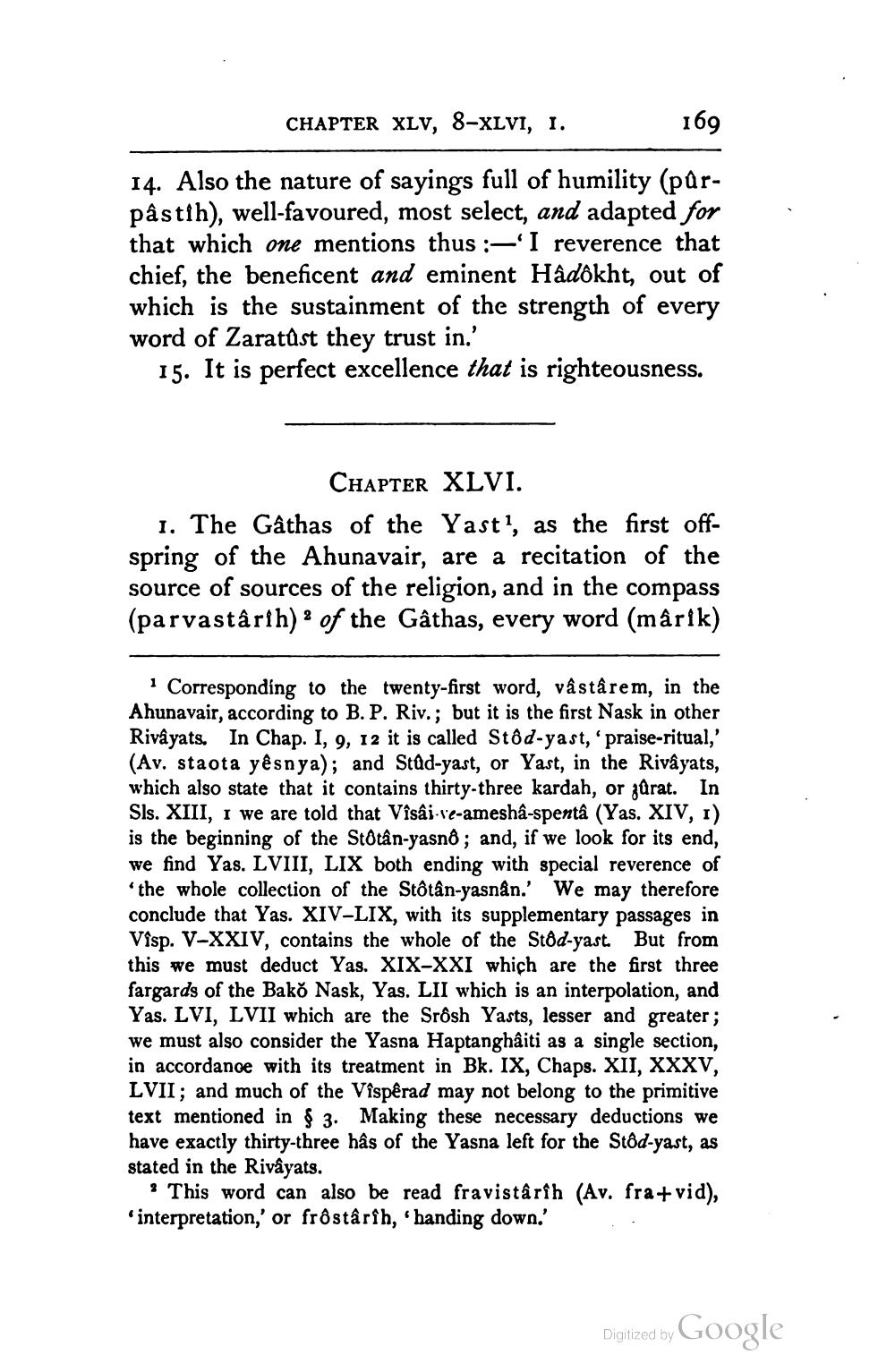________________
CHAPTER XLV, 8-XLVI, I.
169
14. Also the nature of sayings full of humility (pûrpâstih), well-favoured, most select, and adapted for that which one mentions thus :-'I reverence that chief, the beneficent and eminent Hâdôkht, out of which is the sustainment of the strength of every word of Zaratust they trust in.'
15. It is perfect excellence that is righteousness.
CHAPTER XLVI.
1. The Gâthas of the Yast1, as the first offspring of the Ahunavair, are a recitation of the source of sources of the religion, and in the compass (parvastârth) of the Gâthas, every word (mârik)
2
1 Corresponding to the twenty-first word, vâstârem, in the Ahunavair, according to B. P. Riv.; but it is the first Nask in other Rivâyats. In Chap. I, 9, 12 it is called Stôd-yast, 'praise-ritual,' (Av. staota yêsnya); and Stud-yast, or Yast, in the Rivâyats, which also state that it contains thirty-three kardah, or zûrat. In Sls. XIII, I we are told that Vîsâi-ve-ameshâ-spentâ (Yas. XIV, 1) is the beginning of the Stôtân-yasnô; and, if we look for its end, we find Yas. LVIII, LIX both ending with special reverence of 'the whole collection of the Stôtân-yasnân.' We may therefore conclude that Yas. XIV-LIX, with its supplementary passages in Vîsp. V-XXIV, contains the whole of the Stôd-yast. But from this we must deduct Yas. XIX-XXI which are the first three fargards of the Bako Nask, Yas. LII which is an interpolation, and Yas. LVI, LVII which are the Srôsh Yasts, lesser and greater; we must also consider the Yasna Haptanghâiti as a single section, in accordance with its treatment in Bk. IX, Chaps. XII, XXXV, LVII; and much of the Vîspêrad may not belong to the primitive text mentioned in § 3. Making these necessary deductions we have exactly thirty-three hâs of the Yasna left for the Stôd-yast, as stated in the Rivâyats.
This word can also be read fravistârîh (Av. fra+vid), 'interpretation,' or frôstârîh, 'handing down.'
Digitized by Google




